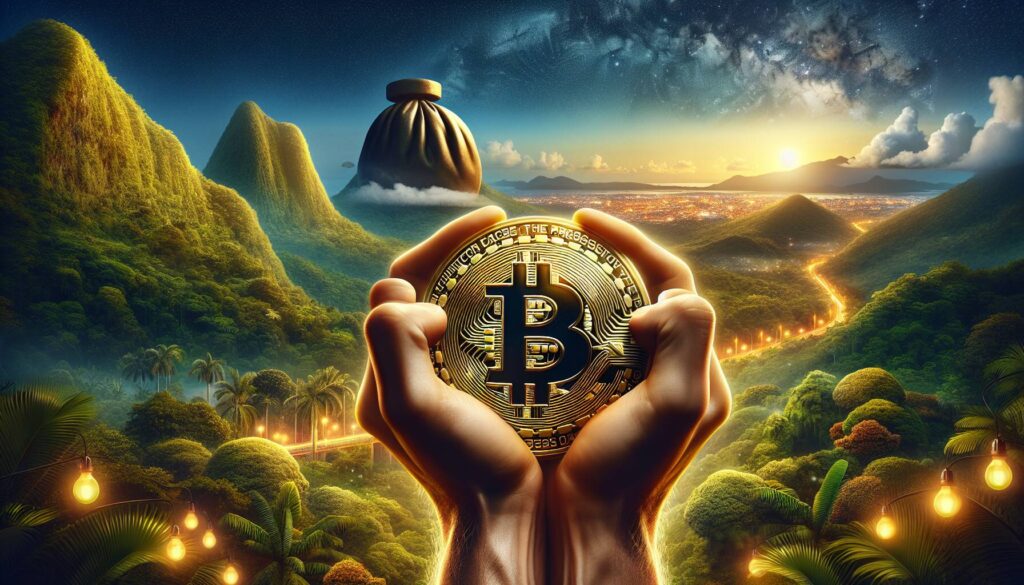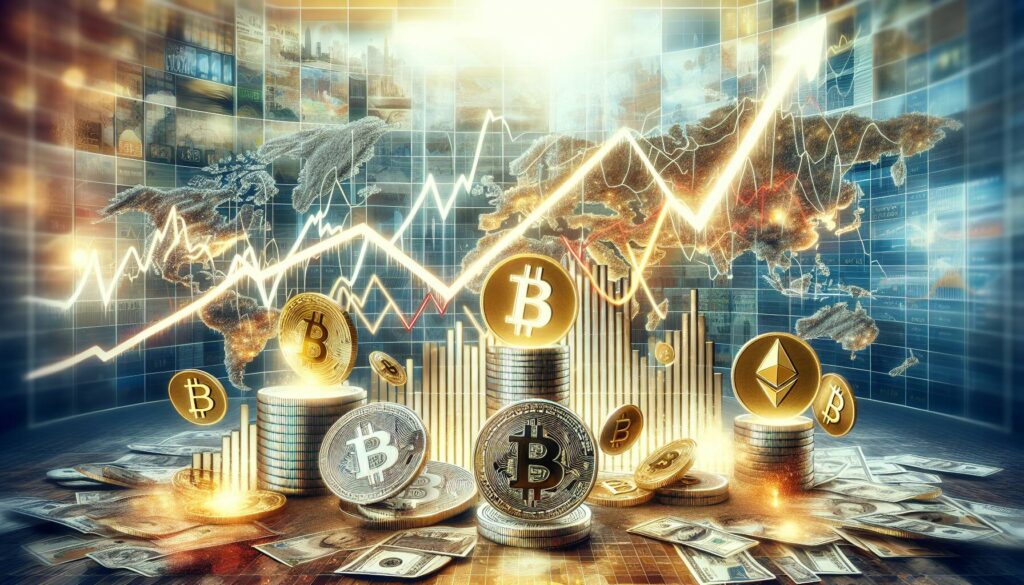El Salvador’s Bitcoin Journey Continues Amid IMF Scrutiny
In a bold stance against international financial pressure, El Salvador, under the leadership of President Nayib Bukele, shows no signs of halting its bitcoin accumulation. Recent comments from the president emphasize a firm commitment to Bitcoin, regardless of external demands from the International Monetary Fund (IMF). “This all stops in April. This all stops in June. This all stops in December. No, it’s not stopping,” Bukele declared on social media, challenging the narrative that seemed to suggest a potential pause in the country’s cryptocurrency investment strategy.
“If it didn’t stop when the world ostracized us and most ‘bitcoiners’ abandoned us, it won’t stop now, and it won’t stop in the future,” Bukele wrote, asserting confidence in the resilience of his government’s financial pursuits.
His comments came just after the IMF disclosed details of a significant .5 billion loan deal with El Salvador, which reportedly included a prohibition against the public sector’s voluntary accumulation of bitcoin. Despite this perceived hurdle, El Salvador announced its latest bitcoin purchases—adding 19 bitcoins over the past week, with one more the following day, totaling 6,101.15 bitcoins valued at approximately 0 million at current markets.
The conversation around this issue has ignited reactions within the bitcoin community, with notable figures expressing skepticism about the government’s future buying capabilities. Samson Mow, once an ally of Bukele, voiced concerns about the potential end of bitcoin purchases for the country. “No more #Bitcoin buys for El Salvador,” he tweeted, predicting halted acquisitions despite recent purchases.
Meanwhile, enthusiasm remains among certain Salvadoran officials. Juan Carlos Reyes, president of the National Commission on Digital Assets, shared Bukele’s sentiments, declaring the situation a catalyst for “monumental change” and commending the president’s unwavering commitment to their crypto journey.

El Salvador’s Bitcoin Commitment Under President Bukele
Key points regarding El Salvador’s continuing investment in Bitcoin under President Nayib Bukele:
- Continued Bitcoin Accumulation: El Salvador is persisting in its Bitcoin purchases despite pressure from the IMF to stop.
- Government’s Bitcoin Holdings: The country currently possesses 6,101.15 BTC, valued at approximately 0 million.
- Rejection of IMF Conditions: Bukele openly defies IMF’s demand to halt public sector Bitcoin accumulation, framing the initiative as essential for the country’s future.
- Public Response: Notable figures in the Bitcoin community have responded critically to the IMF’s claims and the Salvadoran government’s actions.
“Proof of work > proof of whining.” – Nayib Bukele
The implications of these points may influence readers in several ways:
- Investment Perspective: Readers interested in cryptocurrency may consider El Salvador’s approach as a potential model for other nations, affecting global Bitcoin adoption.
- Economic Independence: Bukele’s strategy could inspire other countries to resist international financial pressures and prioritize national interests.
- Market Sentiment: El Salvador’s ongoing investment could sway public and investor confidence in Bitcoin, impacting its market value and volatility.
- Regulatory Awareness: The conflict between national policy and international financial institutions could prompt readers to stay informed about cryptocurrency regulations and developments worldwide.
El Salvador’s Bold Bitcoin Stance: A Unique Approach Amidst IMF Opposition
El Salvador’s unwavering dedication to accumulating Bitcoin under President Nayib Bukele contrasts sharply with the cautious financial maneuvers of other countries navigating similar economic conditions. The nation’s decision to continue its cryptocurrency investment, despite the International Monetary Fund’s (IMF) recommendations against it, highlights a compelling narrative of defiance versus traditional financial wisdom. While Bukele’s firm stance positions El Salvador as a pioneer in adopting Bitcoin, it also comes with significant risks and uncertainties that could impact various stakeholders.
Competitive Advantages: El Salvador’s bold approach to Bitcoin accumulation not only differentiates it from other nations that are hesitant to embrace cryptocurrency but also establishes it as a possible leader in the digital economy. Most notably, Bukele’s advocacy appeals to a growing global community of crypto enthusiasts who view this as a test case for future government policies on digital assets. The ongoing purchases and public endorsements from figures like Juan Carlos Reyes create an air of optimism that could attract investors looking to capitalize on a nation willing to innovate, especially in emerging markets.
Disadvantages: However, this decision is not without its drawbacks. The IMF’s stipulations, which highlight concerns over financial stability and governance, may signify broader international skepticism. Such a stance could limit foreign investments and deter potential collaborations that could be beneficial to El Salvador’s economy. Moreover, the accumulation of Bitcoin, which is notoriously volatile, places significant financial risk on the Salvadoran government, which could affect public funds and economic stability.
This unequivocal pursuit of Bitcoin could potentially benefit local businesses that align themselves with this digital trend, as well as attract tech-savvy entrepreneurs seeking an innovative hub. Conversely, it may create substantial challenges for traditional financial institutions and policymakers who may struggle to integrate these digital developments into existing frameworks and regulations. Citizens could also find themselves caught in the crossfire of a more speculative economic landscape, leading to possible financial mismanagement and social unrest if the strategy fails to yield the anticipated benefits.
Ultimately, El Salvador’s journey towards becoming a Bitcoin hub serves as a double-edged sword. While there are noteworthy opportunities for growth and innovation, the potential pitfalls present a complex landscape that could impact diverse stakeholders across the nation.

















